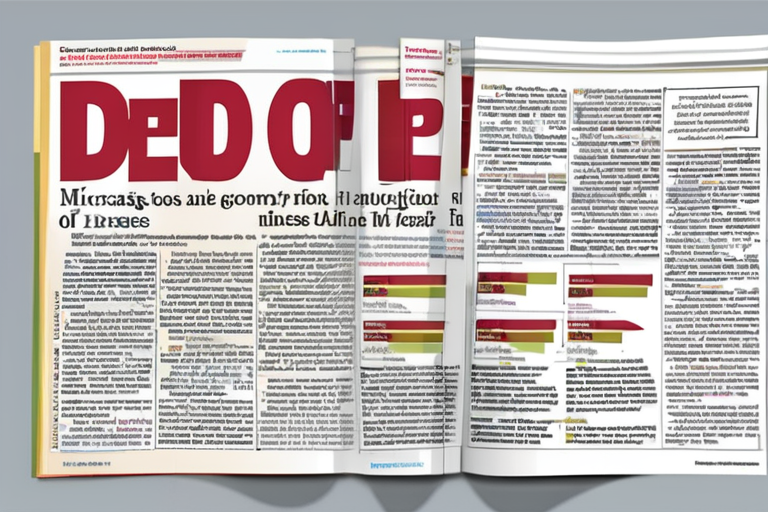

Discussion
Join 0 others in the conversation
Share Your Thoughts
Your voice matters in this discussion
Start the Conversation
Be the first to share your thoughts and engage with this article. Your perspective matters!
More Stories
Discover articles from our community

AirPods Unleash Hidden Hearing Aid Power for Millions
 Hoppi
Hoppi

Strategys Preferred Shares Circle Bitcoin, Cementing Top Proxy Status
 Hoppi
Hoppi

Meta Tests Long-Form Text Sharing on Threads
 Hoppi
Hoppi

Walgreens Boots Alliance Sold to Sycamore Partners in $10 Billion Deal
 Hoppi
Hoppi

DEVELOPING: Microsoft Boss Warns UK Economy on Cusp of 10% Boost in Just 5 Years
 Hoppi
Hoppi

URGENT: Prince Harry Accuses Saboteurs of Undermining Royal Reconciliation Efforts
 Hoppi
Hoppi

AirPods Unleash Hidden Hearing Aid Power for Millions
The Accessibility Revolution Hiding in Your AirPods A groundbreaking feature on Apple devices has been gaining momentum, revolutionizing the way …

Hoppi

Strategys Preferred Shares Circle Bitcoin, Cementing Top Proxy Status
MarketsShareShare this articleCopy linkX iconX (Twitter)LinkedInFacebookEmailStrategys Preferred Shares Form a Bullish Circle Around BitcoinBillions raised through STRK, STRF, STRD and …

Hoppi

Meta Tests Long-Form Text Sharing on Threads
Meta Explores Long-Form Text Sharing on Threads Meta, the parent company of Facebook and Instagram, has been experimenting with a …

Hoppi

Walgreens Boots Alliance Sold to Sycamore Partners in $10 Billion Deal
Walgreens Enters Private Era with $10 Billion Sale to Sycamore Partners In a significant move, Walgreens Boots Alliance (WBA) has …

Hoppi

DEVELOPING: Microsoft Boss Warns UK Economy on Cusp of 10% Boost in Just 5 Years
Microsoft Boss Warns UK Economy on Cusp of 10% Boost in Just 5 Years Microsoft CEO Satya Nadella has announced …

Hoppi

URGENT: Prince Harry Accuses Saboteurs of Undermining Royal Reconciliation Efforts
BREAKING NEWS Prince Harry Accuses Saboteurs of Undermining Royal Reconciliation Efforts Prince Harry has made a shocking accusation, claiming that …

Hoppi